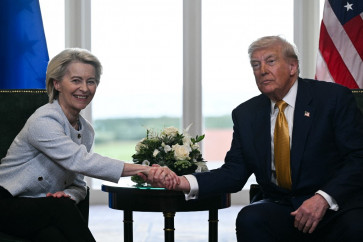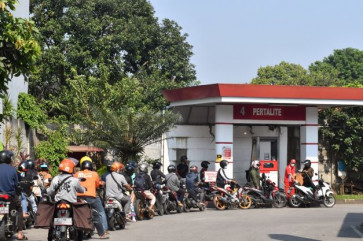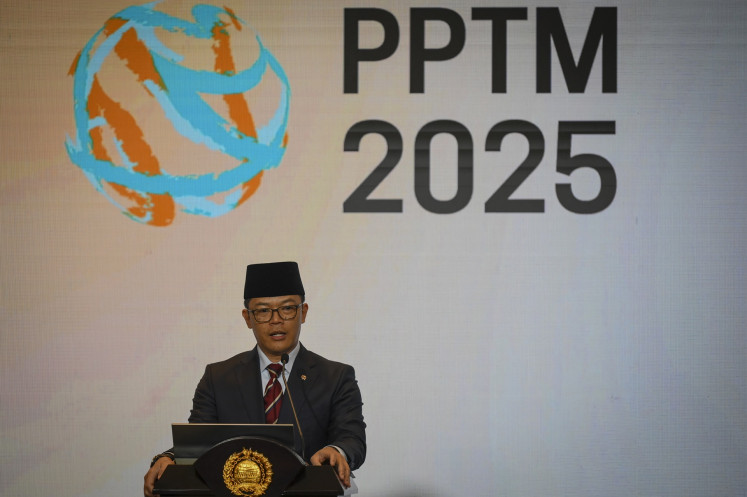Popular Reads
Top Results
Can't find what you're looking for?
View all search resultsPopular Reads
Top Results
Can't find what you're looking for?
View all search resultsRI growth target ‘difficult to achieve’
The government’s economic growth target of 6
Change text size
Gift Premium Articles
to Anyone
T
he government’s economic growth target of 6.8 percent next year will be difficult to achieve, given the bleak outlook of the global economy that will likely continue to pressure Indonesia’s exports throughout 2013, analysts say.
The global economic slowdown is expected to not only affect Indonesia’s exports to Europe and the United States, but also to other big countries such as China, which has also begun to feel the pinch of the global economic crisis.
“Export recovery for Indonesia next year might not be as swift as the government has forecast,” said Mandiri Sekuritas economist Aldian Taloputra. He also predicted that Indonesia’s imports next year would remain high, which would in turn further widen the country’s trade deficit.
Aldian said that other countries would try to increase their exports including to Indonesia to support their lagging economies.
Under such conditions, he forecast Indonesia’s economic growth would hover around 6.5 percent in 2013, assuming that the government started a number of long-delayed infrastructure projects.
The completion of the projects would create jobs and attract further investment, consequently boosting economic growth, he said.
An influx of new investments, coupled with strong domestic demand from Indonesia’s 240 million citizens, have propelled Indonesia to expand by 6.4 percent in the second quarter this year, exceeding analysts’ expectations.
Despite showing its resilience over weakening global demand, the economy would need “significant breakthroughs” to meet its growth target of 6.8 percent next year, said Hendri Saparini, the chairman of the Center for Economic Development Studies (ECONIT).
“I am confident that the structure of our economy will give us economic growth of at least 6 percent.
But reaching 6.8 percent, in my opinion, is a really difficult target,” she said.
She argued that the state budget was way too conservative and thus did not really support its economic growth target, pointing to the lack of fiscal stimulus and capital expenditures in the budget.
For the next fiscal year, the government has allocated Rp 193.8 trillion (US$20.24 billion) in the state budget for capital expenditures including infrastructure, or around 2 percent of the country’s gross domestic product, which many argue is insufficient for a country as large as Indonesia.
On Friday, Bank Indonesia Governor Darmin Nasution said that the state budget “still had ample room” for Indonesia to grow, but the government’s small allocation for infrastructure development would not significantly impact economic growth.
Darmin also warned that, with the current structure of the state budget, pushing economic growth rates too high would only lead to widening current account deficit, which already reached an alarming level of $6.9 billion or 3.1 percent of GDP in the second quarter this year.
Analysts from the Royal Bank of Scotland (RBS) previously shrugged off concerns of a widening current account deficit, describing it as a symptom of good growth.
In a report titled “Indonesia: Staying Afloat in a Perilous World”, the Edinburgh-based bank said that the deficit would foster Indonesia’s economic growth in the medium-run, noting that most of the deficit was used for investment, such as importing capital goods. (sat)










